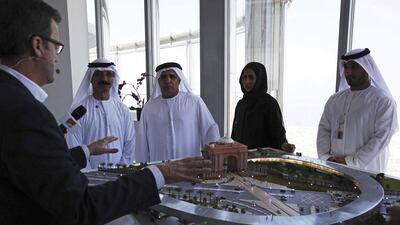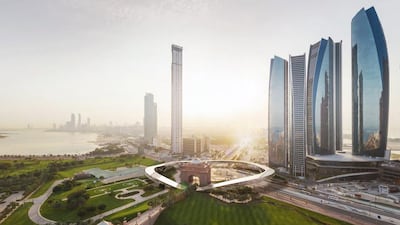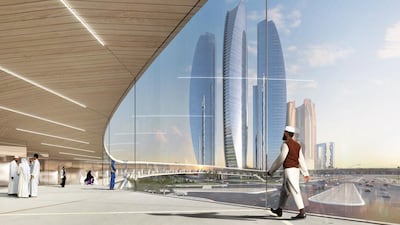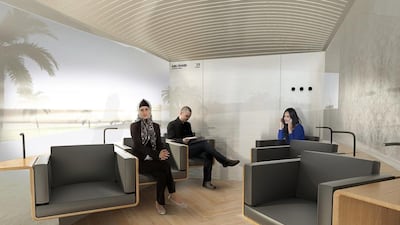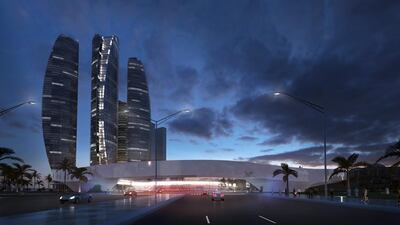DUBAI // Dubai is set to be home to the world’s first Hyperloop One transport link, which is expected to begin operations for passengers in 2020.
Ambitious plans for a new multi-billion dollar, hi-tech transport system have been unveiled that would see travel times between Dubai and Abu Dhabi slashed to as little as 12 minutes.
Once operational, passengers will be able to book travel on the magnetically levitated system with a smartphone app that the creators promise will provide a door-to-door service.
“Having signed an agreement with DP World in August to pursue a cargo-based Hyperloop One system at Jebel Ali Port, our focus has now expanded to include connecting the emirates,” said Rob Lloyd, chief executive of Hyperloop One.
“As a central global transport hub, pursuing the implementation of a Hyperloop in the UAE makes sense.
“The leaders of the UAE understand that transportation is the new broadband, with the power to transform life throughout the GCC.
“We are now at a stage where, from a technological point of view, we could have a Hyperloop One system built in the UAE in the next five years.”
He was speaking during the signing of an agreement between the company and Dubai’s Roads and Transport Authority on Tuesday at the Burj Khalifa.
The dramatically short travel times are in theory made possible by the 1,200kph speed of the “pods” that travel through a tube using magnetic levitation.
The Los Angeles-based startup is planning to show off a working proof of concept system next year.
The agreement will see the partnership between Hyperloop One and the RTA move into a “pre-feasibility stage,” said the company’s co-founder and president of engineering, Josh Giegel.
“That will take between 90 to 120 days but, by the end of it, we will have a plan for where the stations will be located and the route of the network,” he said.
“Once that is complete we will set-up a proof of operations facility where we will be able to test the system on a 20km to 30km track.
“We are working with the RTA to evaluate potential locations for stations and the tube route.”
Developers promise direct travel between destinations, with journeys between Dubai and Fujairah as low as 10 minutes and Dubai to Riyadh in 40 minutes.
The project will be split in to three phases, with the first focusing on creating a network in Dubai.
It will then link with Abu Dhabi and the final phase is expanding to the rest of the GCC.
Although not yet finalised, a video presentation showing a journey between potential stations at Etihad Towers and Burj Khalifa was shown.
Using a smartphone app, passengers will be given the number of the pod they will take for their journey.
Once at the station, they will get into the pod, which can be modified to carry cargo, vehicles or offer a range of seating arrangements.
The pod then moves into the loop tunnel to travel. One of the concepts for the route is to have a mixed underground and overground link.
The pod, itself potentially an autonomous vehicle, is then pushed through the tunnel at 1,200kph before arriving a short time later at its destination. The company is also looking into the possibility of having the pods travel on roads, taking passengers directly to their doors.
“Imagine stepping out of your villa in Dubai, into a self-driving vehicle that resembles your living room and arriving just 48 minutes later at your office in Riyadh. That is what Hyperloop One can deliver,” said Mr Giegel.
No ticket pricing has been set but Mr Giegel believes it would be at an “affordable” level, between the price of a Metro and a high-speed rail service.
“This is an opportunity to help transform the UAE from a technology consumer to a technology creator, incubating expertise for a new global industry, in line with the UAE’s Vision 2021,” said Mattar Al Tayer, director general of the RTA.
“With Hyperloop One, we will create a new means of transportation, keeping our region at the forefront of transportation technology and innovation.”
nhanif@thenational.ae

